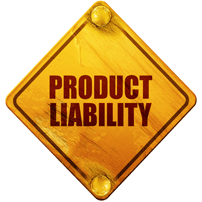Consequences of Dangerous Equipment
March 28, 2018 A New York City sanitation worker’s arm got sucked into a street cleaning machine as he was working recently. The man, who’s also a drummer, said the first thing that went through his mind was whether or not he’d ever be able to play music again. Although he’s worked as a street sweeper for more than 15 years and is familiar with and trained on the equipment, even he couldn’t escape unscathed.
A New York City sanitation worker’s arm got sucked into a street cleaning machine as he was working recently. The man, who’s also a drummer, said the first thing that went through his mind was whether or not he’d ever be able to play music again. Although he’s worked as a street sweeper for more than 15 years and is familiar with and trained on the equipment, even he couldn’t escape unscathed.
Anyone who works around equipment – especially large, industrial equipment – is at risk for injuries and death from product defects, inadequate employee training and maintenance as well as the failure of an employer or supervisor to fulfill their legal obligation for workplace safety. But, machine manufacturers and employers can both take steps to inhibit preventable tragedies by producing safe equipment and remaining compliant with federal safety standards and regulations.
In this case, the man was lucky enough to survive the incident. While he was working, a tire got swept underneath his vehicle. Even though he shut off the street sweeper’s flights (the moving parts that suck debris and dirt inside) before trying to manually dislodge the tire, his arm was still pulled inside and crushed. He has no feeling remaining in his arm due to nerve damage (and it’s unclear if he will ever recover feeling), and he also broke his humerus bone.
Plenty of people work on or around industrial equipment every day. With proper maintenance and training in place – as well as adequate supervision – injuries and deaths are largely preventable. However, when safety programs break down, the consequences can be lethal. There are many different kinds of dangerous workplace machinery such as saws, grinding machines, bending, rolling or shaping machines, trash compactors and street sweepers, forklifts, power presses and many more.
The National Center for Biotechnology Information (NCBI) did a study on trends of fatal workplace injuries from 1992-2010. Although there was a slight decrease in the number of overall machine-related injuries (falling somewhere between 2.6-3.5%), thousands were still injured or killed. The NCBI reports that workers at the highest risk for these types of injuries are:
- Older workers (above 55-years-old);
- Employed in construction, mining, agriculture, forestry or fishing, and/or:
- Self-employed
Some of the most common injuries associated with defective, improperly guarded or defective workplace machinery and equipment are:
- Electrical burns;
- Crushed limbs, hands or fingers;
- Amputations;
- Broken bones;
- Concussions;
- Lacerations, and:
- Wrongful death
According to the Occupational Safety and Health Administration (OSHA), workers experience more than 8,000 amputations yearly. Amputations are more likely to cause permanent disability than many other injuries, meaning that someone may never be able to return to work again. To decrease this number, OSHA urges employers to follow the administration’s safety protocols and prevent injuries like these.
Crushing injuries, which are often also called “caught-in-or-between” injuries, also account for numerous debilitating and deadly cases annually. In 2016, an Allentown-area man was killed at a steel fabrication company when he suffered puncture wounds to his abdomen while using a hydraulic press brake. Some of these fatalities are the result of a manufacturer’s failure to produce a safe product. Other times, employers refuse to provide their employee’s with the necessary tools (personal protective equipment, safety and hazard training, etc.) to prevent accidents from happening.
If you’re a worker who wants to make a complaint about safety violations in your workplace, you can do so here. It’s illegal for an employer to retaliate against an employee for making a complaint.
When a person gets injured at work and has to take time off for medical treatment, the financial aspect can be extraordinarily stressful on both them and their loved ones. Sometimes a person can never return to work, whereas others may require weeks (or months) off to recuperate and partake in rehabilitation or physical therapy. Medical bills are expensive, and when the injury could’ve been prevented by an employer or by more safely manufactured equipment, it’s time to consider talking with an attorney. Not only can someone discuss whether or not he or she is entitled to workers’ compensation benefits but depending on the situation, they may also be able to file a claim against the manufacturer. If you have more questions please contact a representative at our firm.
Allentown Products Liability Lawyers at Galfand Berger, LLP Represent Individuals Injured at Work
If you were injured at work because of defective equipment, please contact our Allentown products liability lawyers at Galfand Berger. With offices are located in Philadelphia, Bethlehem, Reading, and Lancaster and we serve clients throughout Pennsylvania and New Jersey. To schedule a consultation, call us at 800-222-8792 or complete our online contact form.
 Google Screened
Google Screened
